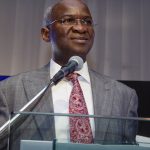In a bid to address the ongoing political instability in Niger, President Bola Tinubu recently convened a crucial meeting with the governors of states sharing boundaries with the neighboring country.

The meeting took place at the State House in Abuja and saw the participation of prominent figures, including Governor Ahmed Aliyu of Sokoto, Governor Umar Namadi of Jigawa, Governor Mai Malam Buni of Yobe, Governor Idris Nasir of Kebbi, and Governor Dr. Dikko Radda of Katsina.
The gathering was part of a broader consultation effort by President Tinubu, who also serves as the chairperson of the Economic Community of West African States (ECOWAS).
ECOWAS has been closely monitoring the unfolding crisis in Niger and recently set a deadline for the Nigerien military reinstatement of deposed President Mohamed Bazoum.
As the deadline approached, President Tinubu made it clear that ECOWAS was ready to employ force as a last resort if the coup leaders in Niger failed to meet the organization’s demands within the stipulated time frame.
However, the Northern Senators Forum (NSF) advised Tinubu to exhaust all diplomatic avenues to resolve the crisis before considering military intervention, expressing concerns about the potential adverse effects on the seven northern Nigerian states, namely Sokoto, Kebbi, Katsina, Zamfara, Jigawa, Yobe, and Borno, that share borders with Niger.
The situation in Niger escalated when, one week after the announcement of President Bazoum’s ouster, the country’s new military government reopened its land borders and airspace but selectively excluded other ECOWAS member states, such as Nigeria.
In response, the Nigerian government decided to close all land borders with Niger and cut off the country’s electricity supply, further straining bilateral relations.
In reaction to these actions, Niger’s military recalled its ambassadors from Nigeria, France, the United States, and Togo, adding further tension to the regional dynamics.
President Tinubu’s meeting with the governors of border states indicates a concerted effort to find a peaceful resolution to the crisis, taking into account the concerns of neighboring states and the broader implications for regional stability.
As developments unfold, the eyes of the international community are on ECOWAS and its response to the unfolding situation in Niger.





Comments are closed.